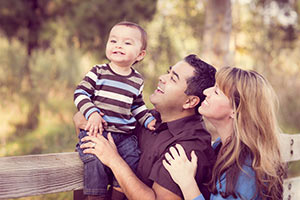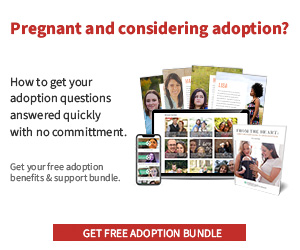ADOPTION IN
Rhode Island

Adoption in Rhode Island is an option for those considering placing a baby for adoption or adopting a child into their own family. One of your first steps in pursuing an adoption in Rhode Island will be partnering with an adoption agency that has your best interest at heart.
Adoption Near Me

Considering Placing Your Baby or Child for Adoption in Rhode Island? You can learn more here or call an adoption counselor 1-800-236-7898.
Domestic Infant Adoptions can be completed through a Rhode Island adoption agency or adoption attorney.
International Adoptions must be completed through an adoption agency or adoption attorney. You can learn more about international adoption here.
Foster Care Adoptions in Rhode Island can be completed through the Department of Children, Youth, and Families (401-528-3676).
Gallery of children waiting to be adopted.
Join the New England adoption group in our community!
Looking for more resources in your area? Check out the Adoption Directory for a listing of adoption professionals in your state.
I’m considering placing my baby or child for adoption.
Pregnant and have questions? We can help answer your questions by telling us what works best for you.
Are you pregnant and considering adoption? Do you need help getting started?
Click here and help us understand what your needs are and the preferences you have. We can help you get started.
Rhode Island Adoption
By: Jenn Martin-Wright
Hey Rhode Islanders! Are you a young woman who finds herself dealing with an unplanned pregnancy? Are you a woman or a couple who has always wanted children but no matter how many tests you take, no matter how many times you have tried shots, artificial insemination, or even several rounds of in-vitro fertilization, you cannot get pregnant? Or, are you a family who has a child but has been told getting pregnant again would not be good for you; that it could hurt you or the baby? This article will cover, briefly, the steps that a birth mother/parents, as well as prospective adoptive parents, must take when considering a Rhode Island adoption.
First, however, let’s take a look at some interesting facts about this great state that residents might not even know. These facts come from movoto.com.
Facts about Rhode Island
- In 1964, a nuclear explosion occurred in Wood River. The only one to ever happen in an uncontrolled area.
- “Block Island” is rumored to be where a ship went down in 1738, and legend has it that the occupant haunts it because no one came to their aid when they needed it.
- Mr. Potato Head was the first toy to ever be on television and is the “family travel ambassador” as of 2000.
- Now, this fact is a bit strange, but did you know that you cannot purchase cap guns in Rhode Island?
- Governor Burnside started the “side-burn” fad.
- Rhode Island has a law that prohibits the biting off of another person’s body part.
- The state of Rhode Island is so small that 400 of them can fit into the state of Alaska and over 4,000 can fit inside the United States.
- The first-ever circus came to Newport, Rhode Island, in 1774.
- New Orleans is generally the place that we think of when we think of “jazz music”, but in reality, the first jazz fest was held in 1954 in New Port, Rhode Island.
There are so many fun facts about Rhode Island that it was difficult to pick just a few to share. If you are prospective adoptive parents, there are many more interesting ideas and facts you might want to check out should you choose to adopt in Rhode Island. If you are a birth mother and are from Rhode Island but were not aware of this information, you can always find out more.

Reasons a Birth Mother/ Place Her Baby for Adoption
- You are a high school student who thought having sex for the first time without protection could not get you pregnant or that condoms were 100% effective in preventing pregnancy.
- You are a college student who finds yourself pregnant but knows that with everything that college entails (classes, homework, studying, a social life, and even a job for some) that you do not have the time or financial means to give a baby everything he/she requires.
- You may be in a relationship, but you may be too young, or you and your significant other may not be in a stable relationship, and you do not want to bring a baby into that.
- You could be in an abusive relationship and do not want your baby to grow up in that kind of environment.
- You might have a job but know that it takes a lot financially to raise a child.
- You may not have the support from family or friends that you need to be able to raise a baby.
- You could be the victim of rape and not sure that you could love a baby that was created in such violence but do not believe abortion (terminating the pregnancy up to 24 weeks after conception) is the right answer.
- You may be an alcoholic or drug addict–even in recovery–but want your baby to have better than that because you are afraid you will relapse and do not want your baby to suffer because of that.
- You are a college graduate but feel you are still too young to be a parent.
- You may want to get your career off the ground before starting a family.

6 Steps to Placing your Baby for Adoption
Do you find yourself pregnant but unsure of what steps you need to take for a Rhode Island adoption? This is a brief explanation of the six steps you will find yourself taking should adoption be the option you choose.
- Making the decision to place your baby for adoption.
Having never had to make this decision myself, I am not certain I could. This is the first step in placing your baby. You must make the selfless, most loving choice that is best for the baby you carry. You may find yourself going through the stages of grief. These stages come and go, and you do not necessarily feel them in order, nor do they go away completely.
- Denial: Once you find out you are expecting, you may be in denial for a while, not wanting to acknowledge that you are pregnant, much less having to make a decision you never wanted to make in the first place. During this phase, you might try to hide your pregnancy from family and friends in fear of retribution, guilt, or shame.
- Anger: You can find yourself angry at everyone and everything for the situation you are in. You yourself, the birth father, your parents, your friends, anyone that you feel you could be mad at.
- Bargaining: You find yourself wanting to make a deal with a higher power that if he could make the situation go away, then you will never have sex again, or at least until you are in a stable relationship with someone you know can take care of you and any children you might have.
- Depression/isolation: You will go through bouts of depression where you lose interest in things that you love to do. You may find that you want to be alone, or feel that you do not fit in or have the same interests as you once had.
- Acceptance: This is the hardest stage to reach because accepting the inevitable is difficult. Some day you will get here, but it may take many days, months, weeks, and even years.
- Finding an adoption agency/adoption attorney.
The decision to place your baby for Rhode Island adoption has been made, so now you want to find an adoption agency to gain a caseworker to help you with the rest of your journey. You want to be certain that the agency you choose is a good fit as they will be with you even through post-placement. The Gladney Center for Adoption is a leading adoption agency located in Texas, but they aid birth mothers/parents and prospective adoptive parents all over the world. If they are not the right agency for you, they will assist you in finding one that is suited better to you and your adoption story.
Hiring an adoption attorney is a good step to take because he/she is the one who will make certain that all the legal aspects of your adoption journey are completed correctly, such as the paperwork and the contract between you and the prospective adoptive parents; he/she will also make sure everything is in order when it comes time for finalization.
- Choosing and meeting the prospective adoptive family.
Being able to choose who gets to raise your baby is a blessing, but it can be as difficult, if not more so, as making the decision to place your baby for adoption. For Rhode Island adoption, as with many other states, there is a fairly new technological advance that allows you to go through several prospective adoptive families called photo listing, which is faster than the old-fashioned way of combing through files.
Once you have decided on the couple/individual you want to become your baby’s forever family, then, in most cases, a phone call takes place. After the phone call, a face-to-face meeting is set up where you, your caseworker, the prospective adoptive parents, and their caseworker get together to talk more in-depth about the wants and needs of both sides. Communication is extremely important; it is helpful to have some questions for the prospective adoptive parents. This meeting is your chance to get to know more about each other, so you want to ask questions that are fun. These questions could include:
- What were your favorite things to do when you were young?
- Were you ever rebellious? What was the most rebellious thing you ever did?
- How old were you when you met each other?
- How did you meet?
- Was it love at first sight?
- What do you like to do for fun?
- What are your hobbies?
- What do you believe makes a good parent?
- Do you know anything about adoption?
- Why did you choose to adopt?
These types of questions will make communicating with the prospective adoptive parents easier.
4. Designing your adoption plan.
With the assistance of your caseworker and the prospective adoptive parents, you have the opportunity to decide what arrangement is made depending on how much contact you have with your child once he/she is placed in a Rhode Island adoption. There are three types that you must consider:
- Closed adoption: With a closed adoption this would mean that once the baby is placed with his/her family, there will be no information given to the birth mother/parents regarding anything about the baby as he/she grows up. For some birth mothers/parents, this seems like the easiest path because you may feel “out of sight, out of mind.” This may work for a while, but you will always wonder how your baby is doing. Another point to consider is when the child comes of age and wants to find you. In most cases, the records are sealed and can only be unsealed by a judge. Even then, there are times when information regarding the birth mother/parents is blacked out, making it that much more difficult for the child to find the answers he/she seeks.
- Open adoption: In an open adoption, all parties decide how much contact the birth mother/parents get to have with the baby. There are several ways this can take place, through letters, photographs, videos, and visits. Every adoption is different and this decision should be made accordingly. The great thing about open adoption is that the child never has to wonder about where he/she comes from because he/she has contact with his/her birth mother/parents and is able to ask questions if the adoptive family permits it.
- Semi-open adoption: This typically means that the birth mother/parents get to be updated as the adoptive parents see fit, and there is information about the child that is not made available to the birth mother/parents.
5. Constructing your hospital plan.
When you have finally reached a decision on who you want to adopt your baby and the type of adoption plan you want, then you get to make the decision of who you want in the delivery room with you when you are in labor. You may find that you want your support system with you, whether it be the birth father, your own mother, or your best friend–whoever has been by your side throughout your journey thus far. Even still, you may find that you want the adoptive mother, if not both adoptive parents, to experience as much of the delivery experience as you can give them, so they feel as if they are a part of it. In the end, you are the one giving birth so you want to listen to your intuition.
6. Life after placement.
As you were going through the motions, and making one heart-wrenching decision after another, did you think about what your life would be like once the dust settles? Do you finish school if you haven’t already? Do you get a job? What about your friends? Will they be the same? Will you continue therapy if you have already started it or start if you haven’t? A therapist can help you deal with the emotions that roil inside you all the time. They can also connect you with birth mother/parent support groups with others who have been where you are. The point is, your life will not go back to the way it was prior to your pregnancy because you are not the same person. You want to find new things to help you through the next leg of your journey.
6 Steps to Adopting a Baby in Rhode Island
There are a few reasons why people consider adopting children: a) they are told not to get pregnant because it could be detrimental to both mother and baby, b) they have tried everything from clocking ovulation to IVF, but still aren’t having any luck, or c) an individual without the means to birth children of their own wants children nonetheless. So, what do you do? For a Rhode Island adoption, these are the basic steps you should take.
- Choosing adoption.
When considering adoption, if you have a spouse or partner, you want to discuss the topic at length with them, making sure that you take into account their feelings on the situation. There may be some partners who are reluctant to broach the subject, much less talk about it. After that, if you have any children already, you want to explain to them what adoption is. According to Dictionary.com, adoption means, “Someone raising a child that is not biologically related to him/her.” You want to make sure that you let them vent their feelings whether they are negative or positive so they feel as if they are part of the journey.
- Deciding on an adoption agency and adoption attorney.
Just like the birth mother/parents, you want to find an agency that suits your wants and needs as this agency will assign you a caseworker who’ll be a part of your journey to the end. You want to be certain that you and the caseworker are a good match as well.
Hiring an adoption attorney is vital because he/she will be the one that makes sure your adoption goes through all the legal channels and everything is filled out and filed with the courts correctly.
- Creating your profile.
Thanks to technology, developing your profile is easier nowadays than it would have been not too many years ago. Now, you can create your profile on the computer. You want to put your best foot forward as you fill out and add photos letting the birth mother/parents know who you are and what makes you her best choice to raise her baby.
- Home study.
This is a must when you wish to adopt a child. During a home study, a social worker will come into your home, interview both adults (separately and collectively), ask about parts of your life such as finances and whether there is room for the adoptee, your parenting styles, and how you will come together and love a baby should you be chosen by a birth mother. If there are children, he/she will sometimes talk to them as well. He/She wants to be certain that the children understand what is taking place and why.
- Meeting the birth mother/parents.
As I mentioned in the second section, communication is key when you meet the birth mother/parents. Just as they can ask you ice-breaker questions, you too can make it easier for the birth mother/parents to open up to you.
- What is your favorite color?
- What subject do you like the least/most?
- What are your hobbies?
- Do you have a favorite hobby?
- What colleges are you looking at attending?
- What do you want as a career?
- What is your favorite thing to do with your friends?
- Does your family support your decision for the type of adoption you want?
- Are there any names you want us to consider for the baby?
- Are there any colors or anything you want us to consider for the nursery?
You have the ability with some simple questions to set the birth mother/parents’ mind at ease.
- Adoption finalization.
Most of the time, the birth mother signs her rights as a parent to the baby over once she hands the baby to her caseworker, but there are times when this doesn’t happen until the finalization. In those cases, the finalization is stalled either because the birth mother was not ready or because the agency could not find the birth father as they need his signature as well. Once the signatures are obtained, your adoption is final.
Rhode Island adoption is not easy for either party involved, but knowing a little bit of what to expect can take some of the pressure off.
DISCLAIMER: Although this article was written to aid birth mothers and prospective adoptive parents in their quest that is adoption, it does not take the place of an adoption agency or an adoption attorney. Please get advice from them when faced with such a decision.
Are you ready to take the next steps on your adoption journey? Visit The Gladney Center for Adoption to learn more.Rhode Island Adoption Guide
The information contained on this website is for educational purposes only and is not intended to be a substitute for professional legal advice. Always seek the advice of a licensed and qualified professional. While the content of this website is frequently updated, information changes rapidly and therefore, some information may be out of date, and/or contain inaccuracies, omissions, or typographical errors.
Can I Adopt in Rhode Island?
Applicants can be single, married, or divorced. You can own or rent a home. The process starts when parents obtain an application package. You must submit to a criminal background check. A licensed social care worker will visit your home to conduct a home study. As part of this process the home will be inspected for safety. Parents wishing to foster must attend a 9 week orientation class.
What Adoption Regulations Exist in Rhode Island?
Advertising: No agency or person may receive any compensation for giving consent or relinquishment of a child for the purposes of adoption. This does not limit reasonable and necessary agency and attorney fees or birth parent expenses. § 63-9-30(5); 63-9-310(F); 63-9-710(A)(11)
Relinquishment: Consent to an adoption may not be executed sooner than 15 days after the child’s birth. The consenting party may challenge the consent in court within 180 days after the final adoption decree is given. §15-7-6; 15-7-21.1
Birth parent expenses: No laws currently regulate private domestic adoption expenses.
Post-adoption contact agreements: Contact agreements in RI are legally enforceable when filed in writing with the court. Birth or adoptive parents may file a petition with the court to compel birth or adoptive parents to comply with the contact agreement. § 15-7-14.1
Birth father rights: While no paternity registry exists, unmarried fathers hoping to receive notice of adoption proceedings may file an acknowledgement of paternity with the family court clerk. § 15-8-3
Finalization: The average time between TPR and adoption finalization in 2014 was 3.4 months.
Is Adoption Assistance Available in Rhode Island?
Can I adopt a Child from another country?
It is always possible to adopt a child from another country, even if you live in the United States. Children under 18 adopted from a Hague Convention country entering the U.S. with an IH-3 visa may automatically receive U.S. citizenship.
Children adopted from a non convention country must qualify as orphans before receiving U.S. citizenship. When U.S. citizens finalize an adoption abroad, they must apply to the USCIS for an IR-3 visa for the child. An IR-3 visa classifies the child as an immigrant and may provide the child with citizenship upon arrival in the States.
Rhode Island currently accepts a foreign adoption decree when parents request a U.S. birth certificate for their child.
State Contacts
Gallery of children waiting to be adopted: https://adoption.com/photolisting?page=1&search_type=region&range=UnitedStates
State subsidy contact:
Diane Savage
DCYF
101 Friendship Street, 4th fl
Bristol, RI 02903
Phone: 401-528-3799
Fax: 401-528-3650
Email: Diane.Savage@dcyf.ri.gov
Summary
Adoptions in Rhode Island can be completed through the Department of Children, Youth, and Families.
Applicants can be single, married, or divorced. You can own or rent. After an application package is submitted, a licensed social care worker will visit the home. Background checks will be conducted. Parents must complete a home study. Foster parents must attend a 9 week orientation class.
No agency/person may obtain any compensation in exchange for consent to an adoption or placement of a child.
Birth parents must wait at least 15 days after birth before consenting to an adoption. Parents have 180 days after the final adoption decree to challenge consent given in court.
Contact agreements are legally enforceable in Rhode Island. While no paternity registry exists, unmarried fathers may take alternate steps to establish paternity.
Adoption assistance is available in Rhode Island. Parents may use international adoption agencies to adopt a child from abroad.










